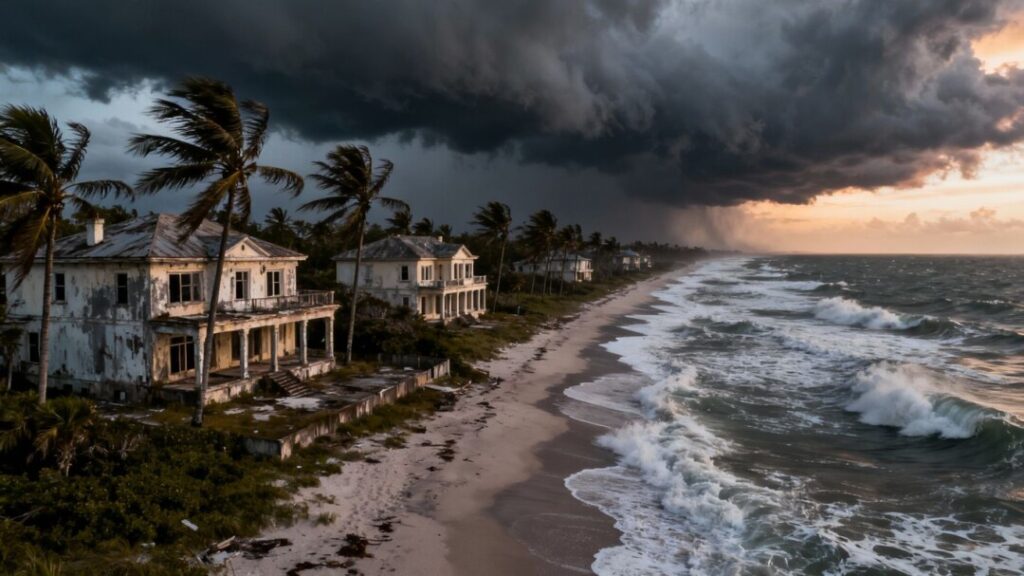Florida’s once red-hot real estate market is showing clear signs of strain as migration slows, inventories rise, insurance costs surge, and home prices start to dip. While experts disagree on whether a crash is imminent, a wave of uncertainty is sweeping across the Sunshine State as it confronts new realities.
Key Takeaways
- Florida’s pandemic-fueled real estate boom has cooled considerably, with demand and prices dropping in several key markets.
- Excess inventory, falling migration, affordability concerns, and high insurance costs are pressuring the housing market.
- Experts predict either a major downturn or a gradual correction, but a full-scale crash remains debated.
Migration Cools, Supply Rises
A dramatic reversal in migration trends has left Florida’s real estate sector vulnerable. The influx of buyers and investors from northern states during 2020-2022 fueled a construction surge. Now, the flow has faded by as much as 80%, leaving more than double the inventory of homes compared to the entire Northeast.
This swelling inventory, paired with declining demand, especially in areas like Cape Coral, Sarasota, and Fort Myers, has flipped Florida from being one of the hottest to one of the coldest real estate markets in the nation. Sellers are increasingly forced to cut prices or watch listings linger.
Affordability and Insurance: Twin Threats
Florida’s affordability crisis is worsening. The median home price remains high, with buyers needing to allocate nearly 40% of income toward home costs—levels reminiscent of the 2008 housing bubble.
Rising insurance premiums, driven by climate risks and recent hurricanes, are making homeownership even less accessible. Some insurers have withdrawn entirely, and homeowners now face 45% higher insurance costs compared to just five years ago. These expenses, on top of property taxes and HOA fees, are pushing many potential residents to reconsider their Florida dream.
Climate Change and the ‘Denial Bubble’
Despite frequent flooding and mounting climate risks, home values in many at-risk areas have stayed resilient. Experts warn of a ‘climate denial bubble,’ with analysts predicting Florida real estate could be significantly overvalued based on flood risks. Still, many buyers remain undeterred, focusing on lifestyle and location over long-term dangers—at least for now. The true impact of climate risks on Florida’s housing prices may play out gradually, or after a future catastrophic event.
The Outlook: Crash or Correction?
Some analysts, referencing historic supply gluts and frothy prices, foresee a crash reminiscent of 2008. Others believe Florida, powered by ongoing but slower population growth and a return to more balanced markets, will see a protracted correction rather than a sudden collapse.
The prevailing sentiment suggests a period of adjustment: buyers gain negotiating power, sellers must temper expectations, and both parties should factor in the true cost of homeownership—including insurance and taxes. Local market trends will likely diverge, with the riskiest and most overbuilt regions seeing the steepest changes.
What to Watch Next
For residents, investors, and policymakers, the next year will be pivotal. Key factors to monitor include:
- Inventory levels and pace of sales, especially in high-risk and previously booming areas.
- Trends in inbound and outbound migration.
- Changes in insurance rates and provider availability.
- The impact of hurricanes and climate-driven events on specific neighborhoods.
Whether Florida faces a crash or a slow correction, the era of unchecked real estate optimism appears to be ending. The market’s ability to weather this new storm will define its future for years to come.
Sources
- Is the Florida Housing Market Headed for Another Crash Like 2008?, Norada Real Estate Investments.
- Is the Florida Housing Market on the Edge of a Crash or Downturn?, Norada Real Estate Investments.
- The 5 Hottest and 5 Coldest Housing Markets in the US, Business Insider.
- Florida’s Home Price Drops Are a Grim Warning for American Real Estate, Business Insider.
- Climate Change Is Coming for Florida’s Real Estate. Why Don’t Prices Reflect It?, Pulitzer Center.


